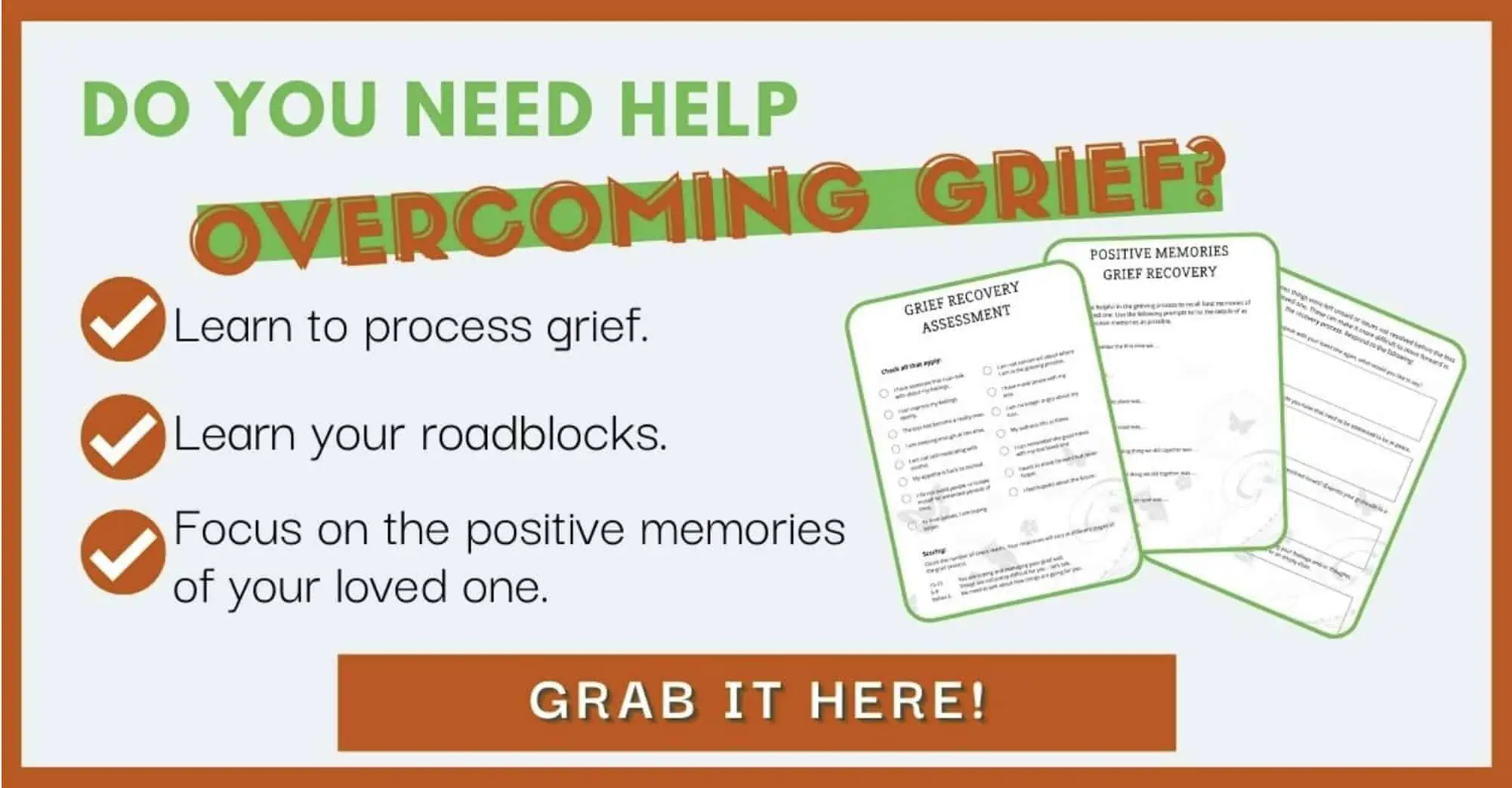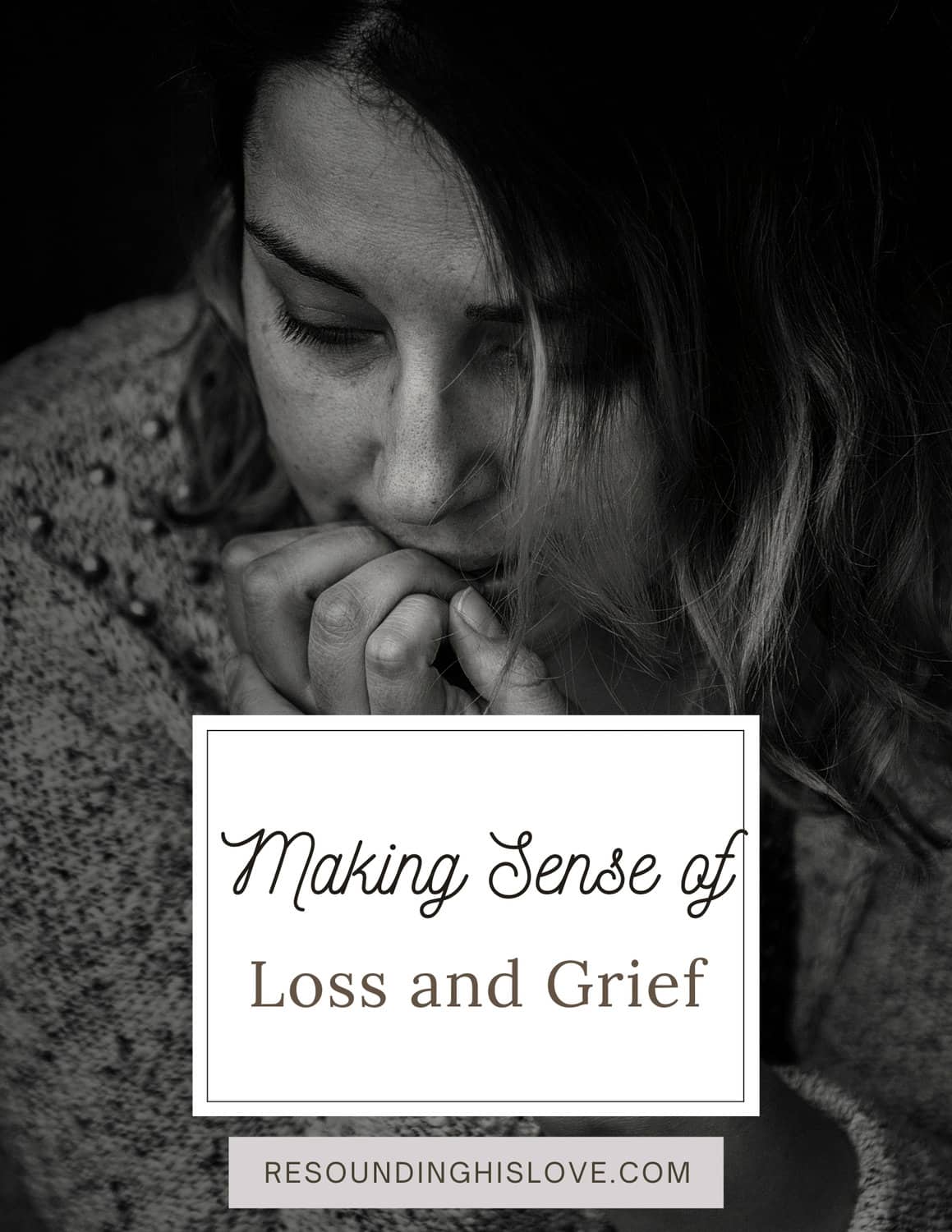
Have you ever wanted to comfort a grieving friend but were unsure how to do so? You are not alone. Here are comforting words to help a grieving friend so that you can come alongside them in their grief and loss. I’m thrilled to have guest writer and podcaster Theresa Boedeker as she shares her insight on comforting words for a grieving friend. This is a continuation of our Hope for Grief: A Grief and Loss Collaboration Series.
PIN ON YOUR FAVORITE BOARD

How can you offer Comforting Words to a Grieving Friend?
Grief is a tricky conundrum. Our desire to help our friend in the midst of her grief is strong. But often we don’t know what to say. What to do.
Things become more complicated when our friend’s current difficulties remind us of the tough experiences that have skated through our lives and the lives of those around us.
This means we may be triggered, dealing with our own past grief as we try and comfort our friend.
Grief Recovery Assessment Sheets

This form collects information we will use to send you updates about promotions, special offers, and news. We will not share or sell your personal information. You can unsubscribe at any time.
Would you like to have a magic wand to wave away your friend’s grief and troubles? But you don’t. So, you often offer inadequate words as a bandage, hoping to cauterize her wound. To stop our triggers.
But often in our haste to comfort her, and to make the situation better, we say the wrong thing. In our nervousness to fill the silence and move on to something more pleasant, we may throw sentimental platitudes and bible verses about grief her way.
Remember What not to say to a grieving friend
What NOT to say to a grieving friend is so important. Read the following…
- All things work out for those who love God.
- They are in a better place now.
- You’ll soon have another baby.
- This is a time to deepen your faith.
- Everything happens for a reason.
- God will use this for your good.
- Stay positive.
Overcoming Grief

This form collects information we will use to send you updates about promotions, special offers, and news. We will not share or sell your personal information. You can unsubscribe at any time.
Your intentions are good. But this is one of those times where hasty words can hurt, more than help, our friend. Platitudes and bible verses about grief can make her feel invisible and silence her.
There is no perfect combination of words that will do the trick and turn our friend’s eyes to hope and her heart to find peace and joy.
Pay attention to the emotions of your grieving friend
But if you pause and listen more than you speak, seeking first to find out what is happening, how your friend is feeling, and understand what she or he is going through before offering our counsel and encouragement, our words will better soothe her grief.
Making Sense Of Grief And Loss
A Grieving friend needs to be acknowledged, seen, and heard
Everyone has a deep need to be seen, heard, and understood. God built this into us. He sees us, hears, understands, knows us, and God loves us unconditionally.
This needs to be seen, known and understood often intensifies with grief because you feel you have been tossed outside the normal and happy unit of life and left to survive on your own without the knowledge or tools to do so.
So how do you help your friend be seen, heard, and understood? God created you to be His hands and feet. To be the community to surround the grieving and help them feel seen and heard.
Often this involves at first holding your tongue and just being with the person. Understanding what the person is going through before you hand out your opinions, suggestions, and bible verses.
Job’s three friends get a bad rap for telling Job that he was to blame for part of his unbearably hard circumstances and loss, but I think his friends should get A+s for showing up and joining Job in his grief.
They heard about Job’s situation and came to help. When they saw Job’s distress, they tore their robes, wailed, put ashes on their heads, and sat down with Job to help him hold his grief (Job 2:11-13).
For seven days they sat silently, not speaking, feeling Job’s pain, grieving with him, empathizing with him. Waiting for Job to first speak. Only then, did they speak.
Jesus didn’t offer bible verses and platitudes to those in need. He didn’t tell the blind man to count his blessings and consider all things as joy.
Instead, he asked what he could do for the man. When he arrived at Mary and Martha’s after their brother Lazarus died, he didn’t tell them to dry their tears because a miracle was coming.
He knew he was going to raise Lazarus from the grave, and yet Jesus still took time to sit and weep with the sisters. He joined in their grief, so they felt their pain was seen and acknowledged.
When I was lying in a hospital bed for weeks on end with a broken back, people from my pre-marriage church came in and out my door.
The verse I heard the most was “All things work to the good of those who love God.” It got to the point I never wanted to hear it again.
Why?
Because not one person asked how I was doing. No one acknowledged the pain and hurt I was experiencing. I wasn’t seen as a person that had a right to grieve or be sad.
Share your experience of grief and loss
The emotions that were swirling through my mind were never addressed. I felt my experience, grief, and situation were being dismissed and ignored, especially as the weather and what was going on in their lives were the topics we discussed.
My situation was the elephant in the room that was not acknowledged with more than a platitude or sentence.
The only time I felt seen and was able to feel sadness for what had happened to me was when my brother-in-law came into my room and just stood beside my bed, holding my hand.
Be there for your grieving friend
Honor Your Loved One’s Memory

This form collects information we will use to send you updates about promotions, special offers, and news. We will not share or sell your personal information. You can unsubscribe at any time.
All he said was, “I am so sorry, Theresa.” Nothing more. For five minutes he stood silently beside my bed, showing his concern, holding my pain, making me feel seen, and providing a glimmer of hope.
Words come after listening to your grieving friend. We are told to mourn with those who mourn, to rejoice with those who rejoice (Romans 12:15). The first is hard. The last is easy.
Mourning with others is hard. It involves empathy. Listening. Asking questions. Feeling pain. Do not assume or offer your opinions and advice until you have sat with your friends in their grief and understand things from their perspective.
Yes, there is a time to offer words of comfort, but that comes after you have mourned with them, seen them, and heard their grief. Acknowledged their grief. Said you are so sorry for what is happening in their lives.
Grief often causes pain that takes years to heal. It steals joy and hope. Let us first offer shoulders to cry on, ears to listen, hands to hold, and prayers to petition their healing.
When you do offer words, let you choose them carefully. Sharing how God helped you through a difficult time, or giving specific examples of God’s grace and concern, is often more helpful than telling them to trust in God.
Reminding them of God’s grace, and love, for them, is more helpful than telling them that God will use this for their good.
Comforting and encouraging a grieving friend is hard, and it is something I am learning to do. But I know that this is how I want to be comforted and encouraged. And my guess is, you do too.

Theresa Boedeker is a storyteller, humor hunter, and encourager of others. She tells stories to connect us, bring hope, spread grace, and help us understand this lovely adventure called life. You can connect with her Life as it Comes Podcast and her blog Things to Remember.
Your Turn
Did you learn new ways to offer comfort to a grieving friend from Theresa? I believe the five ways she offered are extremely helpful and will help you do just that.
Hey Friend, Thanks For Reading!
Note: All information on this site is for educational purposes only. Resounding His Love does not provide medical advice. Please consult a physician if you suspect medical problems or need professional advice.
This page/post may contain affiliate links. I earn from qualifying purchases at no additional cost to you. For more detailed information, please see our Affiliate Disclaimer page. ** For Bible Verses Translations Copyright info, please visit our FAQ page.

